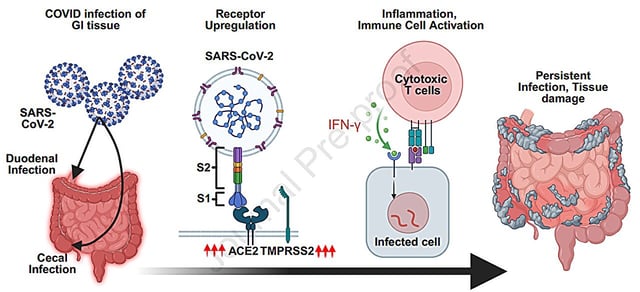Overview
- University of Minnesota researchers reported in iScience that SARS-CoV-2 persisted in the intestinal lining of three immunocompromised cancer patients who had undergone transplant therapies.
- The virus was detected in gut tissue up to six weeks after each patient’s last positive nasal swab, indicating standard swab tests may miss localized infection.
- Persistent intestinal infection was associated with heightened local inflammation and tissue damage, with the inflammatory marker SERPINA1 repeatedly linked to the response.
- The authors suggest measuring gastrointestinal tissue markers, such as SERPINA1, before anti-cancer transplantation to inform treatment decisions and monitoring.
- The team plans larger studies to validate these preliminary findings and explore possible connections to Long COVID, and they advise caution for patients with high SERPINA1 due to inflammation risks during therapy.
